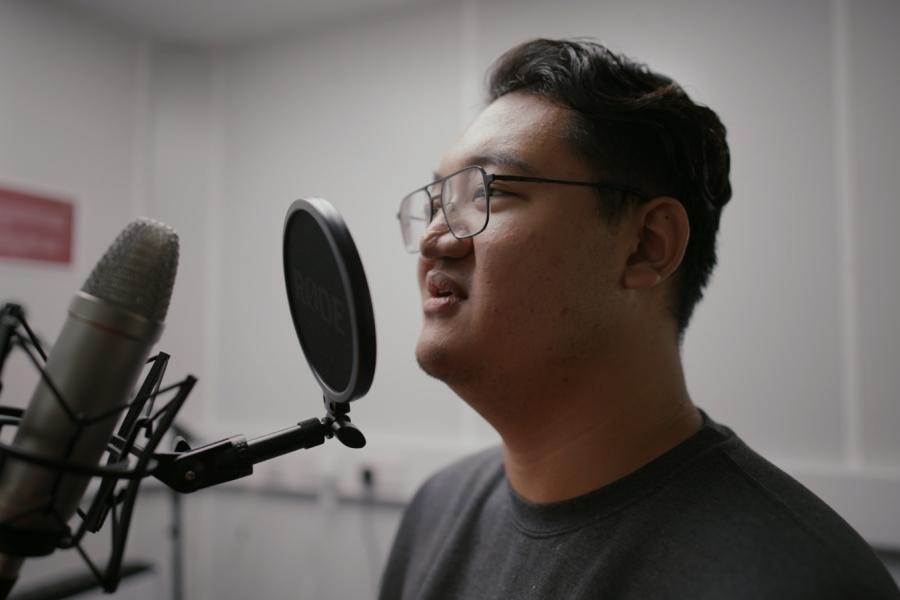About This Course
Bangor University’s MA in Translation Studies is both a theory- and professionally oriented Masters degree that will give you a robust foundation for a career in translation, intercultural communication and the language industries.
This Masters programme is taught by leading academic researchers, as well as Bangor University’s very own professional translators, interpreters and terminologists.
You will gain the critical and practical knowledge required to work in translation, while learning about a diversity of translation-related professions and career routes (audiovisual translation, video game localisation, literary translation, interpreting, freelancer).
Bangor University is unique in it’s offering, being located in an area where two languages are widely used, Welsh and English. Studying in this bilingual environment enhance your experience of studying a masters in Translation Studies.
Student Experience
“Doing the Translation Studies MA at Bangor has been a massively rewarding experience: the course is broad but thorough, with a good balance of theory and practice; the department is small and friendly; tutors are accessible and supportive. Thanks to their encouragement I have entered competitions, met leading translation scholars and been awarded a PhD studentship, also at Bangor. I can’t wait to take my studies further in September.”
Course Content
What will you study on this course?
In both Semester 1 and 2, you will take two compulsory modules and one optional module. For the optional modules, you can choose from a wide range of topics from Medieval to contemporary literature, creative and digital industries, and a wide range of language and linguistics areas, including Welsh linguistics.
The dissertation in Semester 3 consolidates your learning through research or translation practice.
The School of Modern Languages can offer supervision in a variety of areas and languages, including Welsh, Spanish, Chinese, English, French, Arabic, Galician and German.
Semester 1
Core modules in Semester 1 introduce the theoretical and methodological underpinnings for research and key critical debates in Translation Studies.
- Research Methods (20 credits)
- Translation Studies: The Making of a Discipline (20 credits)
- Optional module of choice (20 credits)
Semester 2
Modules in Semester 2 provide you with an opportunity to investigate various aspects of the translation profession and work on an extensive practical translation portfolio on the languages of your expertise.
- Translation in Practice (20 credits)
- Translation Portfolio (20 credits)
- Optional module of choice (20 credits)
Semester 3
Dissertation (60 credits).
The dissertation may be either:
- A research-based approach to any aspect of Translation Studies (15,000 words)
- A proposed translation (10,000 words) followed by a critical commentary (5,000 words). The chosen text cannot have already been translated into the relevant language.
Assessment
Assessment will involve a mixture of:
- Reflective translation exercises
- Critical essays
- Research methods
- Dissertation
Please note: Course content and module information is for guidance purposes only and may be subject to change.
So I had the opportunity to discover the campus, the education systems, the nightlife, the environment, the whole North Wales and it convinced me.
So the coolest part of my course so far was because of the size of our group.
We're only four and we could hear each other's opinion on different subject related to our course,
but also in the world in general, because we're all from different parts of the world.
But I would say more specific to the course in itself, proving this one time thing that we had where we could try interpreting like literally tried by windows interpreting headset and choosing phone or just in real time.
What I really enjoy about this subject is, I would say the stuff I would say the staff because they are friendly and dynamic, open minded.
They make it really easy to talk to them and work through difficulties and improvement.
My favorite thing by Bangor is location, because like I said previously, it's between the sea and the mountains, and because of its well-developed bus service, you can't go anywhere.
I have several advices for people who wish to come to Bangor.
The first one would be to make friends, that's obvious and it can be is in Bangor if you're brave enough.
Then the second advice would be more money related.
Don't be afraid to rush through all the different shops in Bangor because you want you buy more for cheaper that's obvious, so take your time at the year.
And my last advice would be to try to find a job.
So what I would recommend is to work as a freelancer.
You have any skills that can be taught or you can offer and then you go for it.
Modules for the current academic year
Module listings are for guide purposes only and are subject to change. Find out what our students are currently studying on the Translation Studies MA Modules page.
Course content is for guidance purposes only and may be subject to change.
Entry Requirements
A 2.ii undergraduate degree or equivalent in a relevant subject (e.g. Modern Languages, Translation). Candidates are expected to have degree-level competence in at least two modern languages (e.g. Welsh, Spanish, Chinese, English, French, Galician and German).
Applicants with equivalent qualifications or experience will also be judged on individual merit; work experience and other factors are also considered.
For students whose first language is not English, an IELTS score of at least 6.5 (with no element below 6.0) is required.
Careers
You will be prepared for a range of careers as translators within public organisations, such as the European Commission, as well as in private commercial companies and translation agencies.
You may also consider careers in other areas that require advanced language and communication skills such as;
- Marketing
- Public relations
- Technical writing
- Language teaching.
If you wish to further your study subsequently, there is an opportunity to continue in Bangor University with either a practice-led or a research-based doctorate in Translation Studies.




